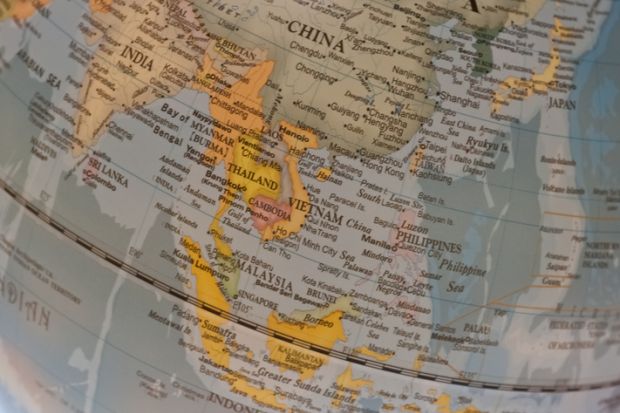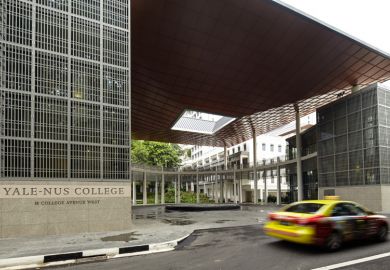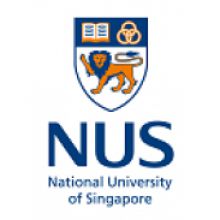A new era of globalisation is beginning, one in which an ascendant China seems poised to assume a greater leadership role in world affairs. Many fellowship foundations, university leaders and students have recognised this geopolitical shift and, as a result, we have seen a tilt towards China for scholarship.
In 2015, the Institute of International Education’s Project Atlas report showed the exponential growth of international students studying in China. Numbers skyrocketed from just above 100,000 in 2004, to just under 400,000 only 11 years later in 2015. New fellowship organisations, such as the Schwarzman Scholars and Yenching Scholarship, are flocking to China to set up campuses.
For two centuries, fellowship programmes, especially in the US and the UK, have been created to tackle global issues. The Fulbright Programme was set up after the Second World War to bridge nations through positive people-to-people interactions. At the turn of the century, the Gates Cambridge scholarship was created to capitalise on the academic expertise of one of the UK’s top institutions to improve the lives of others on a global scale.
However, not until recently has such great emphasis been placed on China as an academic hub. While some question whether the investment in Asia will ultimately pay off, if done well, these new fellowships could result in a momentous sharing of ideas – not just at the university level but in the nation as a whole.
However, the success of institutions as “change agents” in society will not be determined solely by admitting a diverse population of master’s students to reside on a top-notch campus facility for a year. The scholars in these programmes must be primed with the necessary skills to implement this change, and this in-depth development must begin before students enrol.
This is where undergraduate institutions must step in. As a fellowships adviser at Yale-NUS College, a highly selective undergraduate liberal arts institution in Singapore, I work with an extremely international student body who want to tackle contemporary global issues. By virtue of where we are, many students have a deep interest in Asia and a nuanced understanding of China’s emergent role.
Like several of the fellowships in China, Yale-NUS is also quite new, which we believe results in our students adopting a mindset predisposed towards innovation, adaptation and change. In advising sessions, I ask every student: “What kind of impact do you want to have in the world?”
As we approach our first graduation, some students are applying for fellowships in the upcoming cycle but others are thinking several years down the line for their postgraduate plans. In these conversations, I raise the question: “What skills are you currently missing, and how can you develop them over the next one to three years to make you a more effective change agent going forward?”
While such a question can make some high-achieving students feel vulnerable because it asks them to confront a current void in their understanding, I see this conversation as critical and constructive. In building the foundation for future impact in the world, I want students to begin early and to use the campus resources that can assist in filling in those “gaps” before they get to the fellowships application stage.
For those who flag China as their place for future impact, language acquisition is valuable for future cross-cultural professional interactions and many students begin, or continue, Mandarin as freshmen and opt for the highly coveted Tan Chin Tuan Chinese Summer Language scholarship offered at Yale-NUS. Others pursue majors such as global affairs or environmental studies, which allow them to examine transnational policy challenges and to learn the theory of how global players such as China operate in conjunction with others.
Internships, such as IBM Hong Kong’s Smarter Cities programme that looks at city development along the Yangtze, are another way to gain exposure to contemporary thinking in China.
Programmes such as Schwarzman or Yenching are wonderfully ambitious. Perhaps, in the next decade, these revolutionary China-based fellowships can begin to open new political discourse on a larger scale. Their graduates could be the pioneering presences behind greener environmental practices in Beijing, rapid sustainable urban development in rural China, or large multinational policy reform.
It is therefore of the utmost importance that international universities such as Yale-NUS continue to prime our students by encouraging them to identify and then apply their interests fully during their four years as undergraduates.
Charlotte Evans is programme manager (leadership and global citizenship) at the Centre for International and Professional Experience, Yale-NUS College.
POSTSCRIPT:
Print headline: Preparing agents of change in East Asia
Register to continue
Why register?
- Registration is free and only takes a moment
- Once registered, you can read 3 articles a month
- Sign up for our newsletter
Subscribe
Or subscribe for unlimited access to:
- Unlimited access to news, views, insights & reviews
- Digital editions
- Digital access to THE’s university and college rankings analysis
Already registered or a current subscriber?








